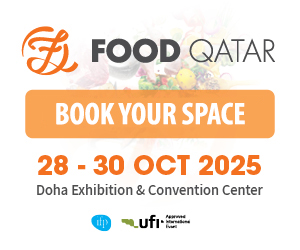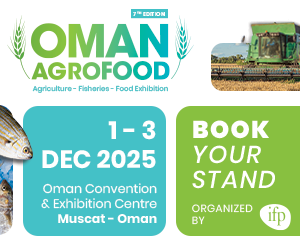The Salalah Agricultural Plain stands as a model of productivity, economic sustainability, and food security enhancement in the Sultanate of Oman. By integrating traditional and modern agricultural methods, it yields a variety of crops and supports industries linked to agricultural products.
Covering approximately 5,000 acres, the Salalah Agricultural Plain benefits from seasonal rainfall during the Khareef season, which lasts from June 21 to September 21. Annual rainfall averages around 100 mm, enriching soil fertility and promoting agricultural growth.
Eng. Fael bin Mohammed Al Jahfali, Assistant Director General for Agriculture and Water Resources in Dhofar Governorate, highlighted the economic value of agricultural production in Oman. Bananas account for about 15.3% of the plain’s total fruit output, with annual production reaching 4,928 tons. These bananas are exported to Gulf countries, strengthening Oman’s agricultural sector.
Additionally, the plain produces approximately 7,000 tons of nutrient-rich coconut annually, contributing to food manufacturing industries, such as coconut oil production and cosmetic and body care products.
Eng. Al Jahfali emphasized that Salalah Agricultural Plain plays a key role in promoting agricultural tourism during the Khareef season. The plain attracts visitors with its lush coconut farms, banana groves, and other fruit trees. Tourists can purchase fresh produce from designated kiosks. Other crops grown include mangoes, citrus fruits, vegetables, and grasses that serve as livestock feed. The plain also cultivates aromatic and medicinal plants suited to humid conditions.
Despite its contributions, the Salalah Plain faces several challenges, including rugged terrain that limits expansion, reliance on rainwater, small-scale farming, and urban sprawl. Traditional farming practices and agricultural pests further complicate efforts.
To address these issues, the Ministry of Agriculture, Fisheries, and Water Resources is introducing modern techniques, such as drip and sprinkler irrigation, greenhouse farming, and hydroponics. Solar energy systems are also being adopted to enhance sustainability.
The Directorate is implementing various programs to support farmers, such as financing projects for turmeric, ginger, and Arabic coffee cultivation. Additional initiatives include distributing wheat seeds, agricultural machinery, and seedlings, while promoting organic farming practices that minimize chemical use. Many farmers in Salalah have adopted greenhouse farming to improve crop yields in controlled environments.
Abdullah bin Mohammed Al Shanfari, a proponent of greenhouse cultivation, explained that this method relies on proper ventilation and lighting. Crops are arranged on accessible shelves, streamlining irrigation, fertilization, and harvesting. Greenhouses, made from moisture-resistant materials like plastic or metal, protect plants from harsh weather. Suitable crops include herbs like basil and mint, as well as vegetables such as tomatoes and peppers.
Alawi bin Abdullah Muqbil, reflecting on Salalah’s agricultural heritage, noted the region’s long history of adapting to its unique climate and terrain. Traditional rain-fed agriculture thrives during the autumn rains, supporting crops like barley, wheat, and corn. Mountain terrace farming helps conserve soil and water, while traditional ploughing techniques persist despite the impact of climate change and urban expansion.



















































































